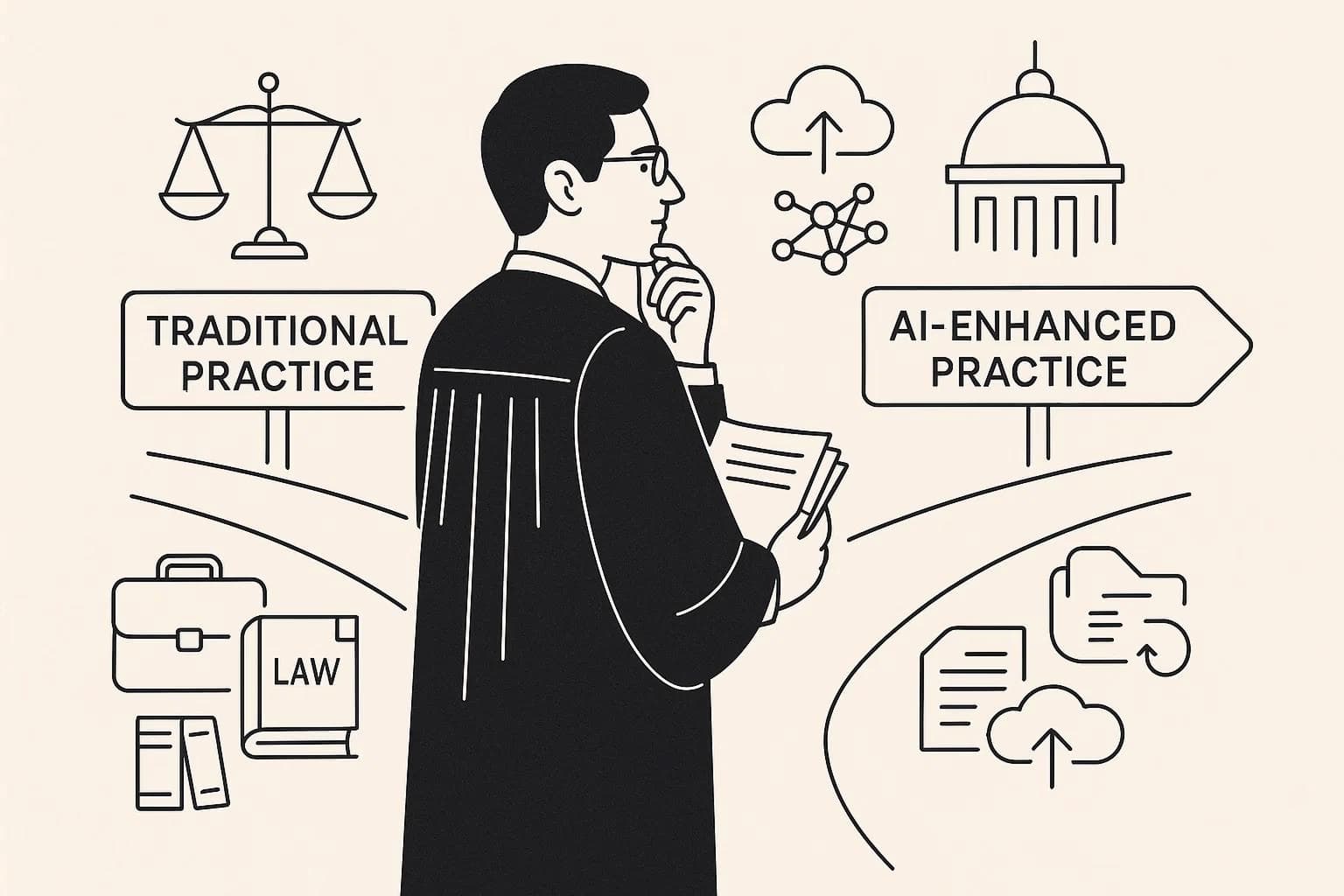Jun 09, 2025
Why Should Lawyers Care About AI?
AI is transforming the legal profession. From research and drafting to client service, this article explains why embracing artificial intelligence is essential for lawyers to stay efficient, ethical, and competitive.

The legal profession is at a turning point.
Not because lawyers themselves are changing, but because the tools they use are.
Artificial Intelligence (AI) is no longer a futuristic idea. It’s already transforming how law is practiced, delivered, and expected by clients.
So the real question isn’t:
“Will AI impact the legal industry?”
It already has.
The real question is:
Are you ready for it?
What Is AI and Why It Matters for Law
AI (Artificial Intelligence) refers to computer systems that can do tasks that normally need human intelligence—like reading, writing, analyzing, and problem-solving.
In law, AI doesn’t mean robot judges or courtrooms run by machines. It means:
- Smarter legal research tools
- Faster contract reviews
- Auto-generated drafts
- Intelligent case prediction models
AI is quietly becoming a powerful assistant behind the scenes for lawyers who choose to use it.
5 Reasons Lawyers Should Embrace AI Now
1. Clients Expect Speed, Accuracy, and Lower Costs
Today’s clients want legal services that are as fast and reliable as the tech products they use every day. AI makes this possible:
- Automated contract analysis → fewer errors
- Research in seconds → faster turnaround
- AI-assisted drafting → lower billing hours
Your client isn’t just comparing you to other lawyers—they’re comparing you to Google.
2. AI Frees You Up for High-Value Work
AI isn’t here to replace lawyers. It’s here to remove repetitive, time-consuming tasks like:
- Reading hundreds of judgments
- Summarizing lengthy documents
- Drafting similar contracts again and again
This gives you more time for strategy, advocacy, and client relationships—the things only you can do.
3. Early Adopters Get a Competitive Edge
Firms that are already using AI are:
- Winning clients through faster service
- Cutting costs with automation
- Upskilling their teams for the future
If you’re not using AI yet, you’re competing against those who are.
4. AI Levels the Playing Field for Small Firms
You don’t need a big budget or tech team to get started. Affordable, cloud-based tools let small firms compete with big ones.
For example:
- Order.law for smart legal research
- ChatGPT for first-draft generation
- India Kanoon for quick case lookups
Small teams can now do work that only large firms could handle a decade ago.
5. AI Is Changing Legal Education and Hiring
Law schools are training students on AI tools. Job descriptions now include tech skills. Courts are digitizing their systems.
The entire legal ecosystem is moving forward. If you don’t evolve with it, you risk being left behind.
Real-World Examples of AI in Action
- A litigation team uses AI to analyze thousands of discovery documents in hours, not weeks.
- A solo practitioner uses AI tools to find relevant High Court judgments in minutes.
- A law firm trains its juniors to use AI for drafting, cutting turnaround time by 50%.
These aren’t experiments. This is daily legal practice in 2025.
Overcoming Common Fears
“I’m not tech-savvy.”
Most legal AI tools are designed for lawyers, not engineers. They’re easy to use.
“What about data privacy?”
Top platforms follow strict data protection and compliance standards.
“Will AI make me replaceable?”
Not if you adapt. AI handles the routine work. You provide human insight, judgment, and strategy.
How to Start Using AI in Your Practice
- Start small – Pick one use case, like legal research, to explore first.
- Take demos – Try platforms like Order.law, LawGeex, or DoNotPay.
- Talk to peers – Learn from other lawyers who are already using AI.
- Keep learning – Follow legal tech blogs, take short online courses, and join webinars.
Final Takeaway: The Future Is Collaborative
AI won’t replace lawyers.
But lawyers who use AI will outpace those who don’t.
If you want to deliver better service, work more efficiently, and stay ahead in a rapidly changing legal world, embracing AI is no longer optional—it’s essential.